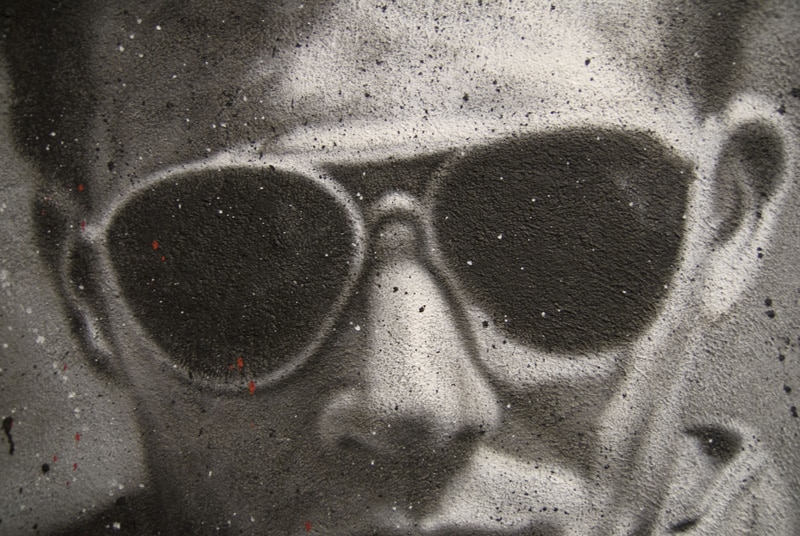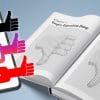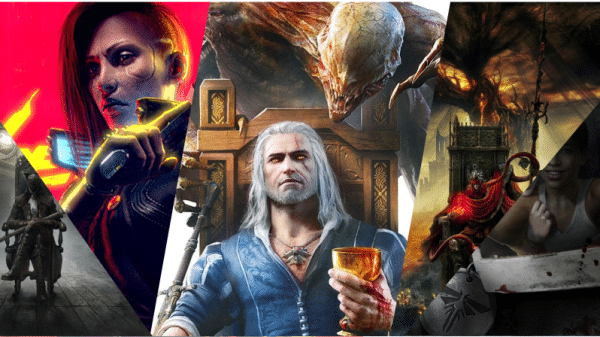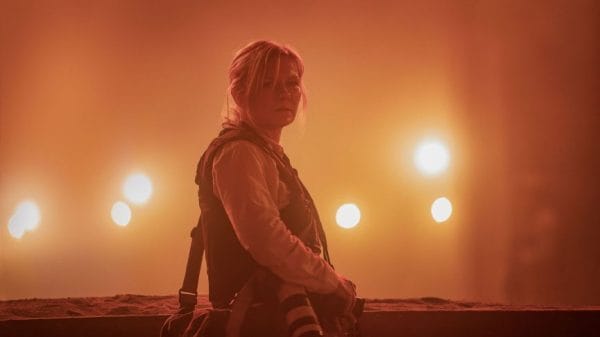Featured Image Via
Hunter S. Thompson is an icon of the 1960s couterculture. He’s mainly known for his book Fear and Loathing in Las Vegas and his distinct brand of news reporting, Gonzo journalism. His articles mostly explore politics and sports with a smattering of his own drug-fueled misadventures. Curiously, he never wrote much about music, despite writing for Rolling Stone in its formative years and in a time when pop music held great political power. That’s what makes a letter of his describing his favorite albums of the ’60s so interesting.
The Letter Itself
The letter in question was written in December 11, 1970 and addressed to John Lombardo, his editor at Rolling Stone. It was later published in his correspondence collection Fear and Loathing in America (and made available online through Google Books!). Most of it touches on the magazine’s coverage of his involvement in Joe Edwards’s “Freak Power” campaign for mayor of Aspen, Colorado in 1969. It’s a story that he tells best, and you can find a sample on Rolling Stone‘s website here. In this letter, he just hashes out details for sending photos from the campaign. He also describes a recent conversation with Lombardo as his first since the election night defeat.
Then he rips into Lombardo for saying Thompson wasn’t big on music: “I resent your notion that Music is Not My Bag (or whatever you said …)” He mentions that he has “been arguing for years that music is the new Literature.” To the frustration of my English professors, the Nobel Prize committee would agree with this 46 years later. You can tell he was as passionate for rock as for politics because he threatens violence over it: “If the Grateful Dead came to town, I’d beat my way in with a fucking tire iron if necessary.”
The List Itself … A Necessary Translation … I Praise Bob Dylan a Lot … More Unsolicited Opinions
Alright, I’ve kept you waiting long enough. Without further ado (except for that statement – and this one – and this), here’s Thompson’s list. The top ten albums of the 1960s, according to one of the writers who created its lasting image. Take this with a grain of salt, because in the letter he credits it to his alter ego, Raoul Duke:
- Memphis Underground (“Battle Hymn of the Republic”) H. Mann
- “Mr. Tambourine Man” (Bringing It All Back Home) Zimmerman
- Highway 61 … Zimmerman
- Workingman’s Dead … Warlocks et al.
- Let It Bleed
- Buffalo Springfield first album
- Surrealistic Pillow
- Roland Kirk … (various albums)
- Sketches of Spain … M. Davis
- Sandy Bull …#2
Alright, I heard every single one of these albums in preparation for this article. Let me translate these listings:
- Memphis Underground is a jazz album by Herbie Mann. In the letter he says it “may be the best album ever cut by anybody.” He seems to single out the last track, a cover of the classic “Battle Hymn of the Republic.” I can confirm that the song, and the rest of the disc, are pretty solid
- The “Zimmerman” mentioned here is Robert Zimmerman, mostly known by his stage name Bob Dylan. Thompson seems to love “Mr. Tambourine Man” in particular, and it’s a song that always makes me feel warm and astounds me with its lyricism. Of course, the rest of the album is astounding, too: it’s Dylan at his peak. I particularly recommend “Maggie’s Farm” and “Gates of Eden.”
- Never mind, Highway 61 Revisited is Dylan at his peak. The lyrics in songs like “Like a Rolling Stone” and “Desolation Row” are probably why Thompson calls Dylan “the 1960s’ answer to Hemingway” in the letter. Other faves include “Tombstone Blues” and the title track.
- Workingman’s Dead is by the Grateful Dead. In the letter, Thompson calls it “the heaviest thing since Highway 61 and ‘Mr. Tambourine Man.'” Not sure if I’d agree that it’s heavy, even for its time, but it’s pretty strong.
- Let It Bleed is the Rolling Stones album that gave us two of their best songs, “Gimme Shelter” and “You Can’t Always Get What You Want.”
- Buffalo Springfield’s self-titled album is traditional folk, even rather country. The ensemble players are all good, and the multi-part harmonies are killer. Stand-out songs include “Out of My Mind” and “Sit Down, I Think I Love You.”
- Surrealistic Pillow is the most famous album by Jefferson Airplane, and it includes psychedelic classics like “White Rabbit” and “Somebody to Love.” Not coincidentally, those two songs are the only ones with Grace Slick as the lead singer. The rest of the album, which is rather generic feature some dude who sings decently but sounds like every other ’60s singer. Very much a time capsule.
- For Roland Kirk’s “various albums,” I listened to Volunteered Slavery. It’s more freestyle than the tighter Memphis Underground, and most of the recordings were taken from concerts.
- The “M. Davis” behind Sketches of Spain is none other than jazz maestro Miles Davis. This one was released at the dawn of the decade. Contrast that with choices like Memphis Underground and Let It Bleed, which were hardly a year old when Thompson put them on his list.
- Sandy Bull’s #2 presumably refers to his second album, Inventions. At least, that’s the interpretation that Open Culture chose when discussing this list.
So What Does It Say About Thompson?
Your musical taste does accurately tell me about you, including your politics.
Eric Barker, Time Magazine
Thompson’s list of the best ’60s albums looks totally different from lists that most modern listeners would make. Seriously, no Beatles? No Beach Boys? And what’s with all this jazz? What drugs was he on?
Okay, he was on a lot of drugs, but let’s think about what this list means. It was written at the end of 1970, and people at the time had a very different view of the decade’s music than we do now. For example, the reputation of Pet Sounds had yet to be vindicated by history. However, this means he had a clearer picture of the decade’s music than people mostly familiar with Vietnam War film soundtracks and Rolling Stone best-ever lists. Psychedelic rock and pop dominate our conceptions of the time, but jazz and folk dominate Thompson’s list because they were still major parts of the era.
I should also note that seemingly none of these albums heavily feature the studio wizardry that characterizes ’60s music for modern listeners. Even the most psychedelic of Thompson’s top ten feature rather traditional production and arrangements, without sound effects or distortion. Well, he does say about the Monkees, “I don’t have much stomach for studio-born road-shows.” Perhaps the idea of “fake bands” that relied on studio performers and technical flash just didn’t appeal to an iconoclast like Thompson.
One more thing: Thompson’s image is often seen as “savage.” The guy rode with Hells Angels and made enemies with his outspoken criticism of Nixon. Why would his top album, and certain others, consist of pleasant jazz and folk? Well, his writing is very stream-of-consciousness, often veering in unexpected directions. He even wrote to Lombardo in this very letter that he changed his mind halfway through writing a new article. Perhaps he saw some cross-medium kinship in freestyle jazz players. As for the folk? Thompson’s a very earthy man, or at least his writing gives that impression. I can only guess that he liked more politically conscious music with working-class themes and vibes, like Bob Dylan and Buffalo Springfield’s stuff. Plus, man’s gotta calm down sometime. Can’t party 24/7.
Geez, I’m alrady at more than 1200 words. That’s what I get for trying to ape Thompson’s style. I gotta admit, Music is Not Really My Bag either, but I’ll write about it any time if it means getting to pay tribute to one of my favorite writers and my inspiration for newswriting. Res ipsa loquitur.
Let the Good Times Roll with another article about Thompson. This one talks more about his drug consumption, and it’s rad.














